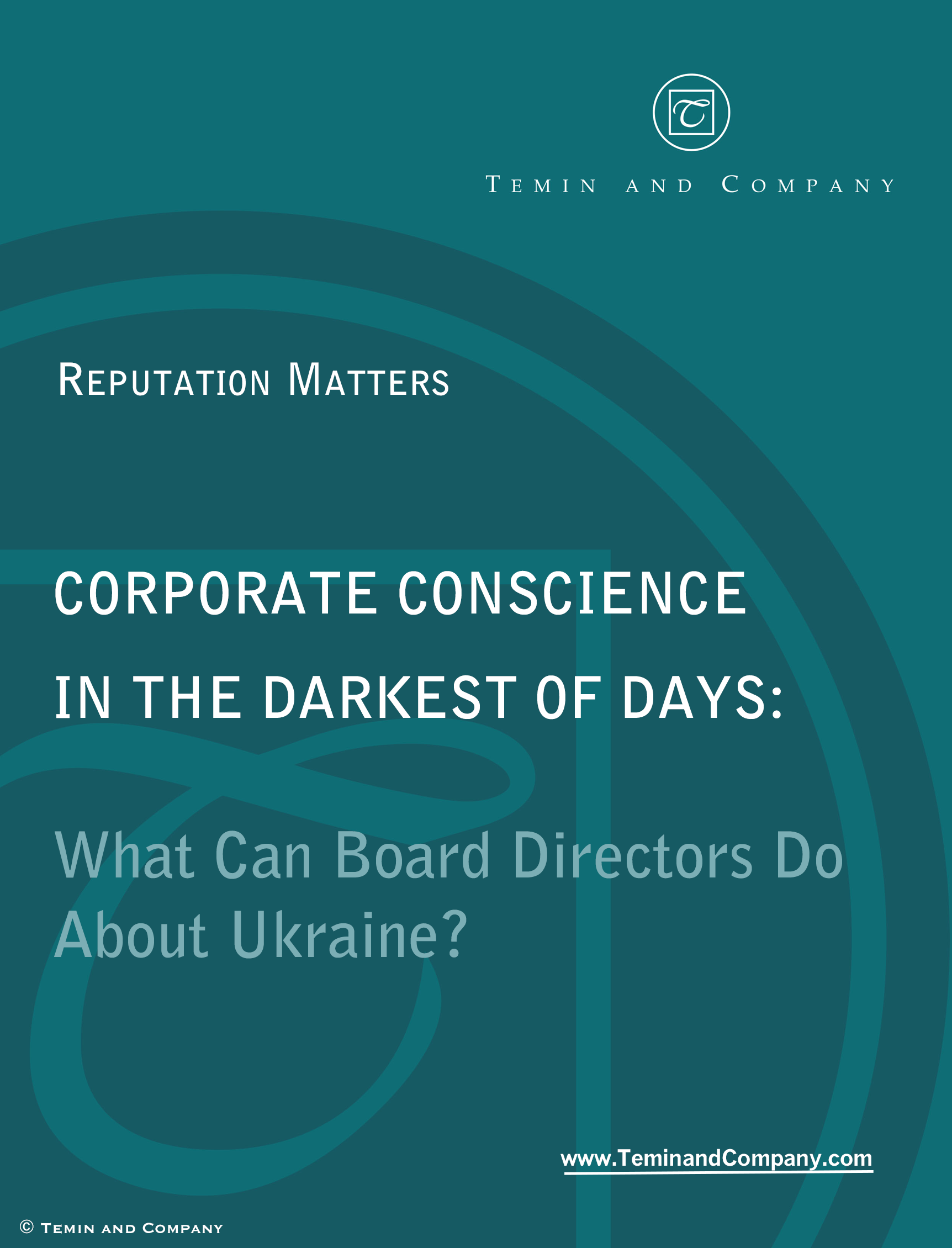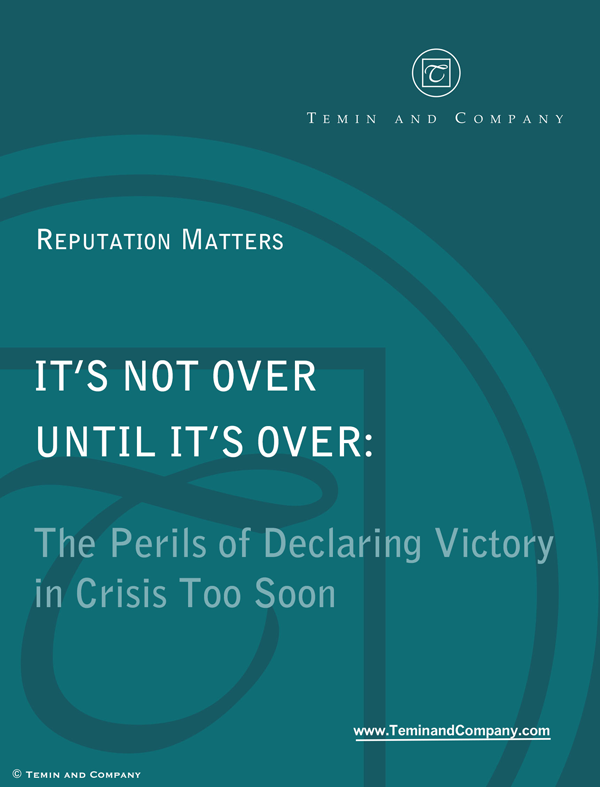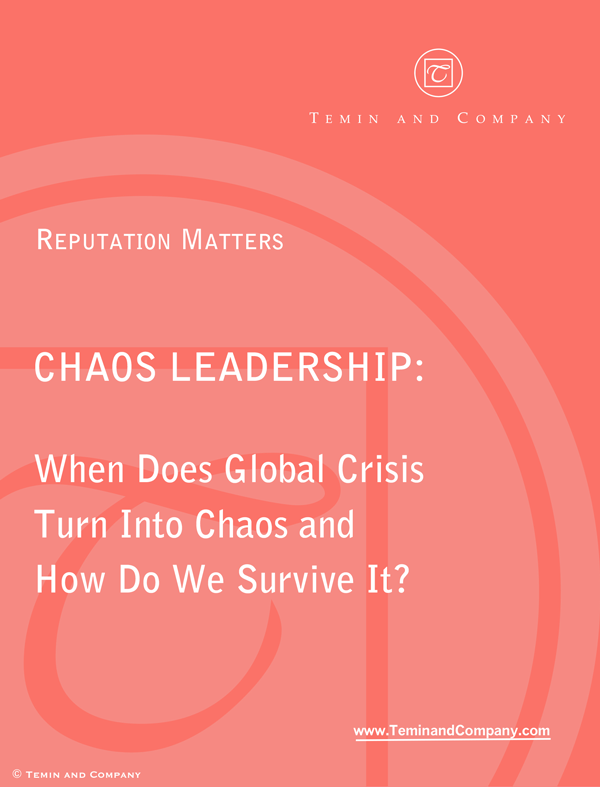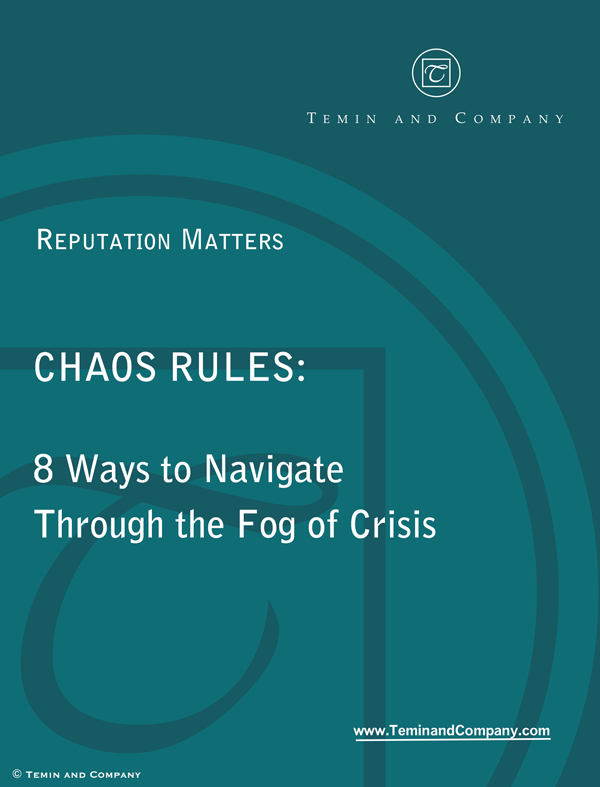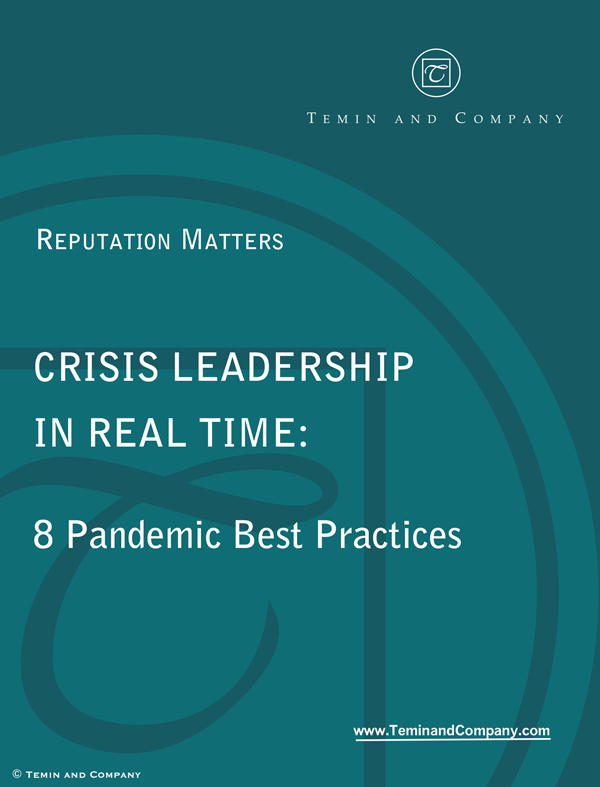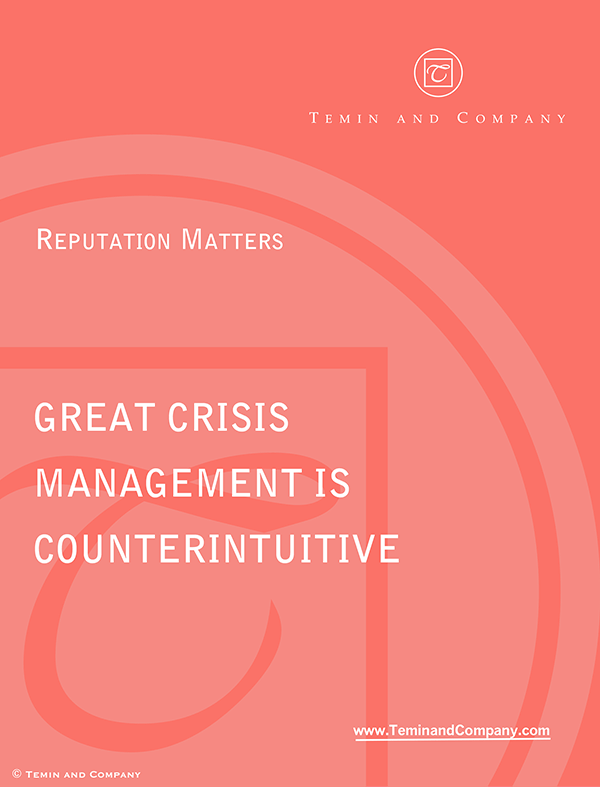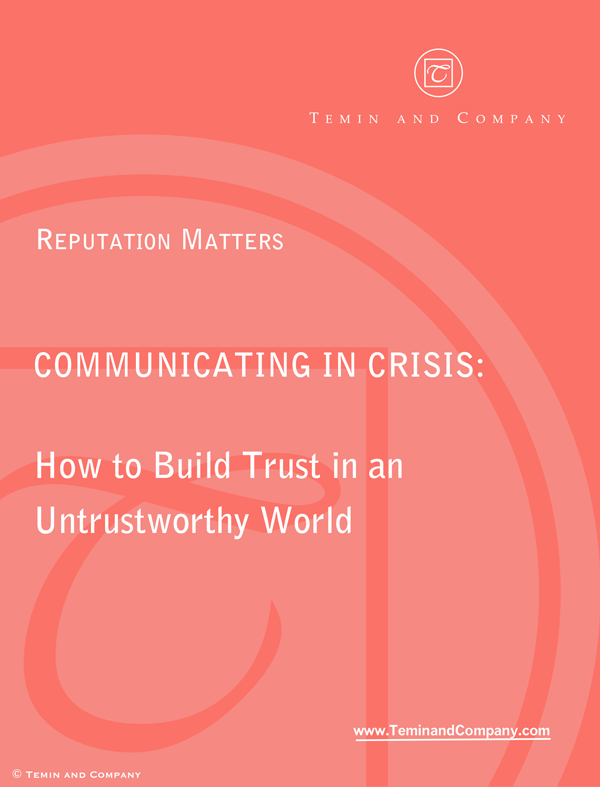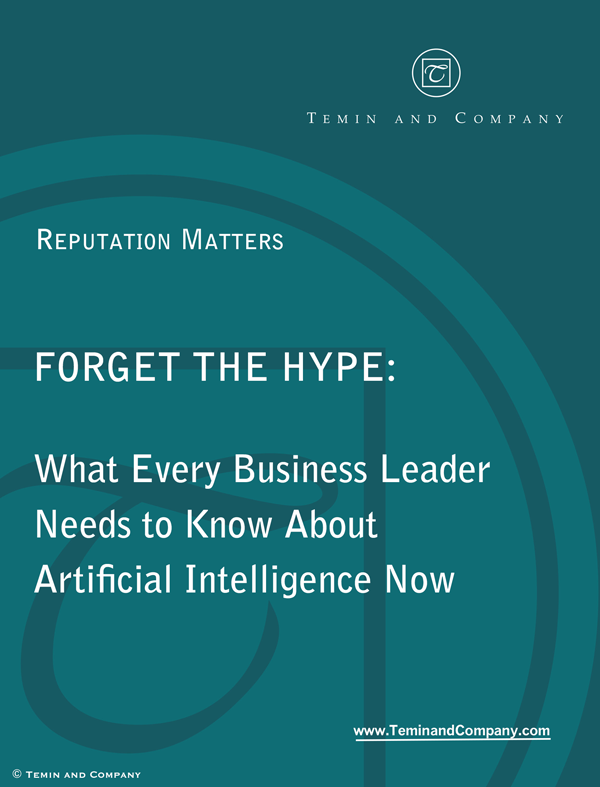Thought Leadership–Crisis Articles
White Papers»
"Reputation Matters" White Papers seek to offer deeper insight on a wide range of topics we help clients address.
How The Reputation Risk Of #MeToo Is Forcing Businesses To Reevaluate Their Corporate Culture
Leadership, “Reputation Matters,” Forbes, May 14, 2018
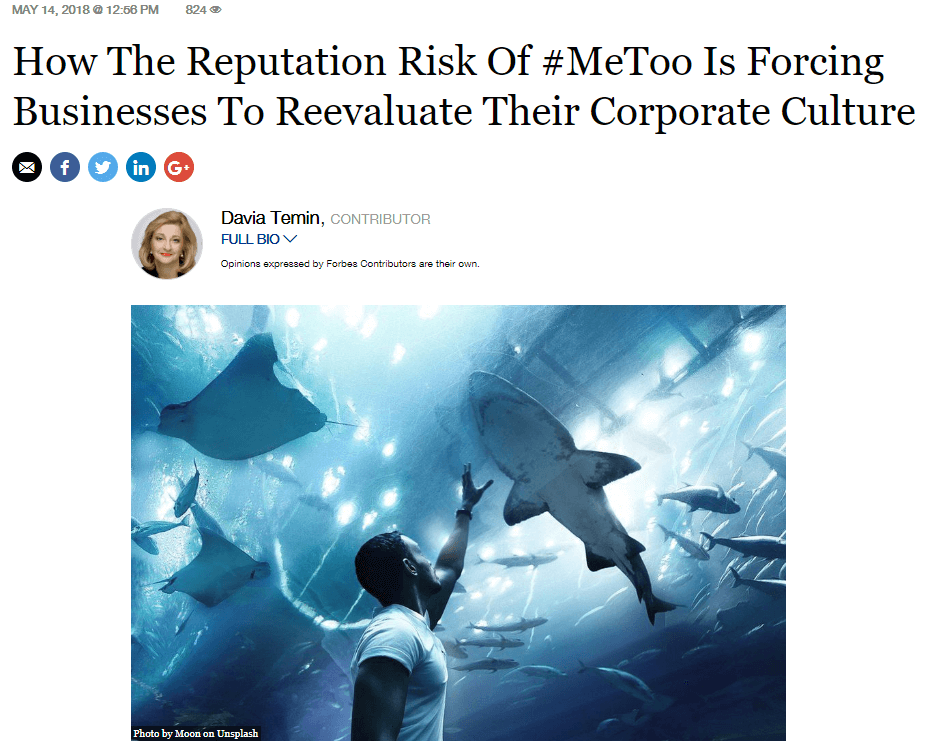
Real #MeToo incidents in the workplace aren’t happening in a vacuum. Whether they are the most egregious examples of sexual harassment and abuse, or more subtle acts of unconscious bias, they all happen within a culture that somehow sanctions them.
New Examination of Corporate Culture
That is why the reputational risks of #MeToo (we calculate that since the first Bill Cosby trial, 298 high-profile executives have been let go in the US because of sexual improprieties), as well as escalating global calls for gender equity, are sparking a whole new examination of corporate and organizational culture. What elements of culture enable abuse, or create a toxic work environment, and what elements preclude them? […read more]
Best Board Practices in Managing Reputational Risk
Davia Temin and Darcy Howe, Risk & Compliance, April-June 2018
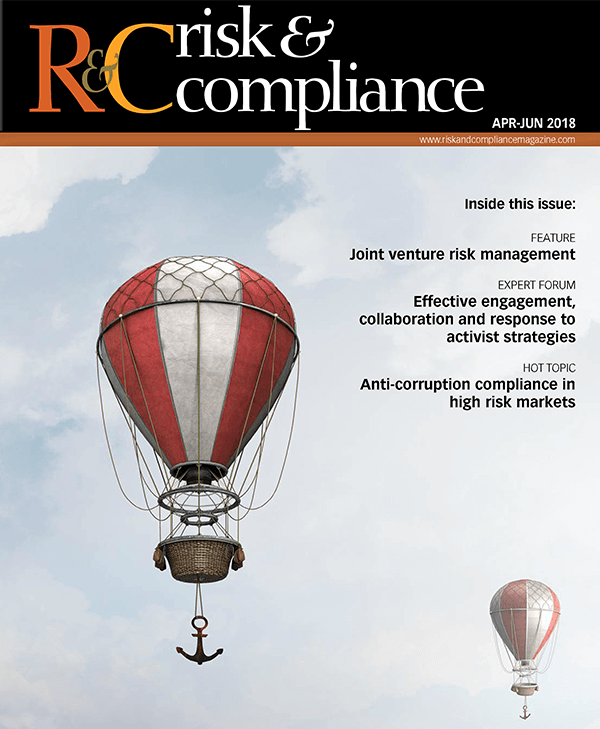
The stakes around reputational risk have never been higher for companies – with the potential for damaging everything from market value to the ability to recruit and retain the best talent. Regulations put in place post-global financial crisis called for boards to disclose their role in risk oversight, but the explosive disclosures around cyber hacks and sexual harassment have lifted reputational risk oversight to an even more heightened level of urgency.
A key issue is how crises today are creating significant reputational impact. When a company experiences a crisis event – whether it is a massive data breach or allegations of misbehaviour in the executive ranks – the reputation of every investor, every customer and every person who gets a pay cheque from that company is at risk.
There are a number of best practices for directors when facing the highly complex and sensitive issues emerging today. Davia Temin and Darcy Howe share a number of best practices for boards, who are more involved in managing reputational risk than ever before. […read more]
What Mark Zuckerberg Should Have Said
Leadership, “Reputation Matters,” Forbes, March 23, 2018

You know that Marianne Williamson quote: “Our deepest fear is not that we are inadequate. Our deepest fear is that we are powerful beyond measure?” Well so it is with Facebook. It turns out Facebook is far, far more powerful than any of us — even they, even Mark Zuckerberg — ever thought.
And with such awesome power comes awesome responsibility.
This week, Facebook shirked that responsibility through its terribly late and insufficient response to the Cambridge Analytica data hijacking scandal.
As a crisis advisor and coach who has crafted hundreds of what I hope are truly on-point, effective, and emotionally resonant crisis responses, here’s what I wish Mark Zuckerberg had done to give the world a response worthy of a Facebook’s vast global power and influence. […read more]
A 15-Point Plan For Boards And CEOs To Eradicate Sexual Harassment In Their Organizations
Leadership, “Reputation Matters,” Forbes, January 17, 2018
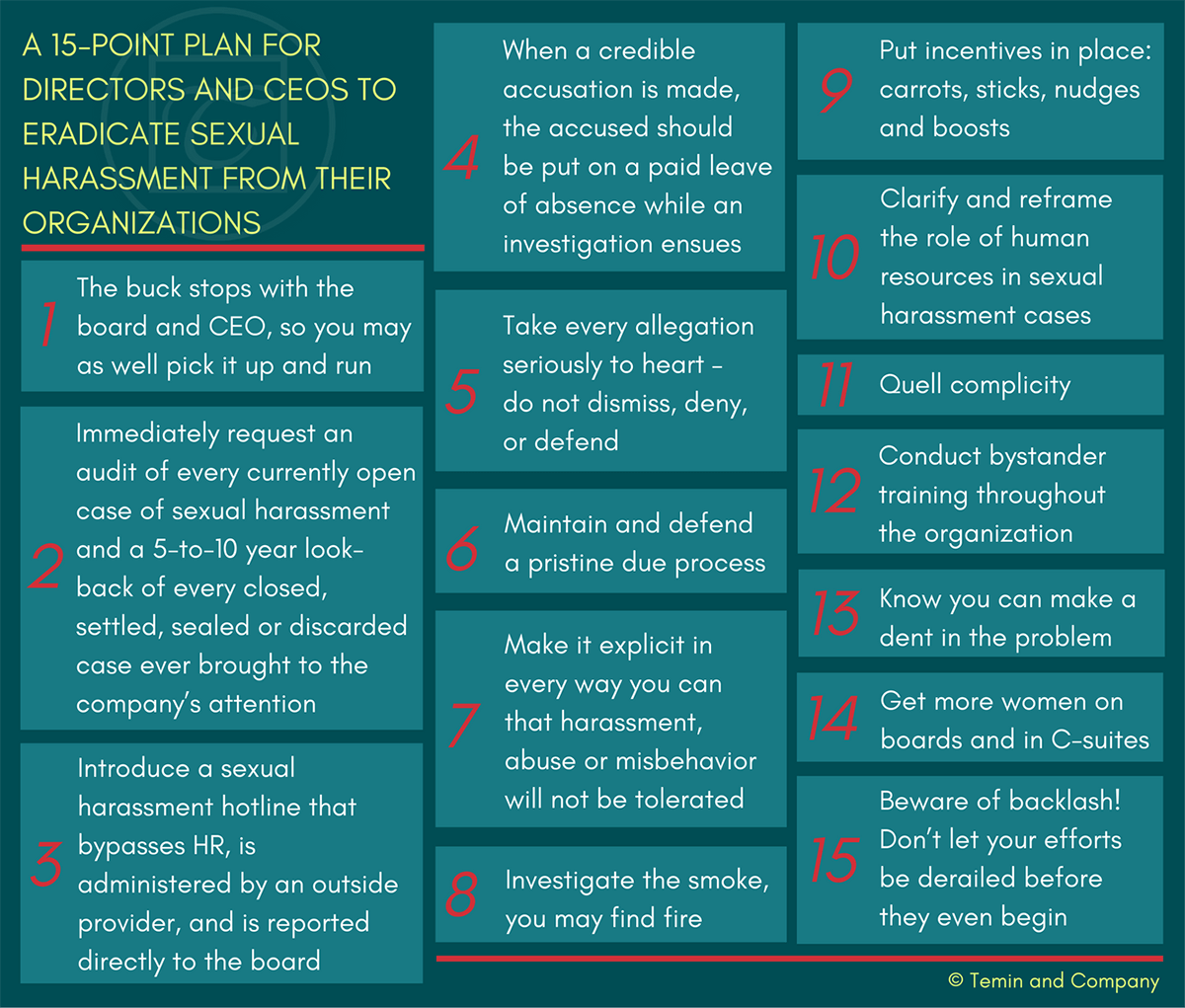
As organizations wait for the next wave in the tsunami of sexual abuse charges that is rocking American business, board directors and C-suite executives are fixated not only on understanding their risk exposure, but on what they can do to get ahead of the issue.
The only solution – and the right solution of course – is for leaders of all stripes to seriously take up the challenge of quashing sexual harassment in their workplaces for good.
Davia Temin’s “15-Point Plan To Eradicate Sexual Harassment In Your Organization” is an actionable, and easy-to-execute game plan for serious boards and executives. […read more]
Poisoned Apple Antidote: 11 Ways For Apple To Recover Trust After Its Battery Slowdown Crisis
Leadership, “Reputation Matters,” Forbes, December 31, 2017
The past several weeks have seen a string of mounting customer allegations against Apple, accusing the company of planning the obsolescence of its older 6 series iPhones through its last updates that limited those phones’ battery power and slowed them down significantly.
After radio silence, on Thursday December 28th, Apple finally posted a plausible explanation of why the last update indeed does hobble performance, and an apology, clearly trying to contain the reputational damage it has sustained.
While that explanation is a perfectly adequate one – it is too little, too late. […read more]
How Boards Should Handle a CEO Scandal
Chief Executive, October 24, 2017
It used to be that a founding CEO could be excused all manner of misbehavior by his or her board, as long as it was kept quiet and the bottom line was not negatively impacted. In my 20 years as founder and CEO of a boutique crisis management firm, I have dealt with well over 60 cases of CEO dismissal, and an equal number of case where the CEO did not get dismissed. It used to be that the board might either tolerate bad behavior, or publicly support a CEO while privately chastising him relentlessly. Regardless, he or she would stay.
More recently, however, given the outsized attention to serious CEO misbehavior, boards really have little choice—they must react, and act, quickly and decisively. In the brave new world of 24-hour news cycles and social media commentary that transits the globe at the speed of light, no CEO is invulnerable or—once found to be guilty of ethical violations—irreplaceable.
Boards need to keep ahead of the public humiliation and loss of reputational equity caused by major CEO misbehavior or malfeasance. If they deny, or stall, they run the risk of ruining their company and turning themselves into the targets of shareholders’ and the public’s bloodlust. […read more]
Uber CEO Kalanick’s Resignation Is Not The Best Answer
Leadership, “Reputation Matters,” Forbes, June 21, 2017
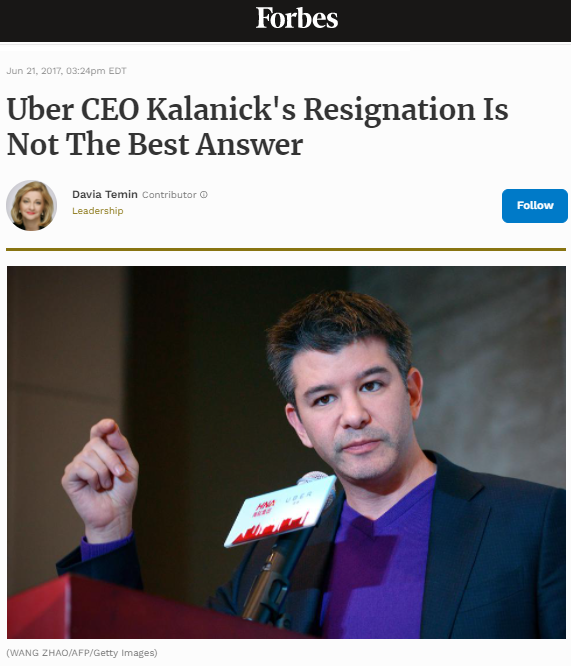
I am sad that Travis Kalanick had to resign. As news of the Uber CEO’s resignation is digested by the world’s media analysts and leadership pundits, I would like to put forth a contrarian point of view – especially coming from such an outspoken advocate of gender equity in organizations. I do not think this is the biggest win that we who are interested in a bias and harassment-free workplace could have hoped for. Not by a long-shot.
Reformation vs. Resignation
Kalanick’s reformation would have been such a more powerful and optimistic story. It would have shown that, yes, personal transformation is possible, even among tone-deaf, frat-boy, start-up executives. And it could have shown that once a leader is made to, and allowed to, grow up, he or she can own it, and then transform a culture. […read more]
How United Became The World’s Most Hated Airline In One Day
Leadership, “Reputation Matters,” Forbes, January 18, 2017
It’s no longer crisis as usual for United Airlines, or anyone else. Live social media posting has changed what you can get away with in a crisis — forever.
It used to be that if an airline made as monumental a mistake as United Airlines just did by causing a paying customer who had done nothing wrong to be dragged off a plane screaming, bloodying him up along the way in front of all his fellow passengers, they might still have gotten away with it.
After all, on a plane, passengers were basically incommunicado, so people couldn’t have protested easily, and they might not have been believed, especially if the airline denied it or called it an “overreaction.” The populace tends to believe its leaders in these situations, if compelling evidence to the contrary doesn’t exist. It rather makes one wonder about how many times such a debacle has happened before, and just not been caught on video.
But today all that changed. Live footage of the assault of an innocent passenger by security personnel was captured and immediately posted on social media around the world, instantly making United one of the most hated companies in the world. […read more]
Crisis management in food retail
Food Marketing Institute and Oliver Wyman, Boardroom, March 2016
Anticipated or not, when a crisis strikes a company, CEOs must be prepared to respond immediately in order to lead their organizations through a potentially catastrophic event. Within the last 5 years alone, the food industry has been at risk for a wide spectrum of crises, including E. coli and norovirus outbreaks in fresh food, cybercrime such as high-tech SQL injection attacks aimed to steal customer data, natural disasters, and traditional and social media public relations disasters. While there are certainly aspects of a crisis response that can be planned in advance, each incident inevitably requires a unique approach.
In many crisis situations, the reputation of a company hangs in the balance and can literally vanish overnight if the crisis is not addressed immediately and correctly. The expansion of social media in recent years has exacerbated this trend, bringing widespread, factually incorrect, and damaging attention to issues such “pink slime” and the presence of horse meat in beef products. These issues have gone viral and, in some cases, pushed companies to the brink of bankruptcy. Interestingly, reputation is rarely the top priority identified by a crisis incident response team. However, given how quickly exaggerations and mistruths spread, reputation does need to remain top-of-mind for every executive in a crisis. […read more]
Which Republican Candidate Would You Trust In A Foxhole?
Leadership, “Reputation Matters” Forbes, October 29, 2015
Arguably, our American president is really the world’s Crisis-Leader-in-Chief. We rely on him – or her – to calmly, wisely, and brilliantly lead us through untold global craziness, back to economic progress, justice, security, and freedom.
So, politics aside, let’s try to rate last night’s 10 Republican debaters on their crisis leadership performance. In other words, when the going gets rough, which candidate would you want next to you in a foxhole? More importantly, who would you trust to get you out? […read more]
White Papers»
"Reputation Matters" White Papers seek to offer deeper insight on a wide range of topics we help clients address.




